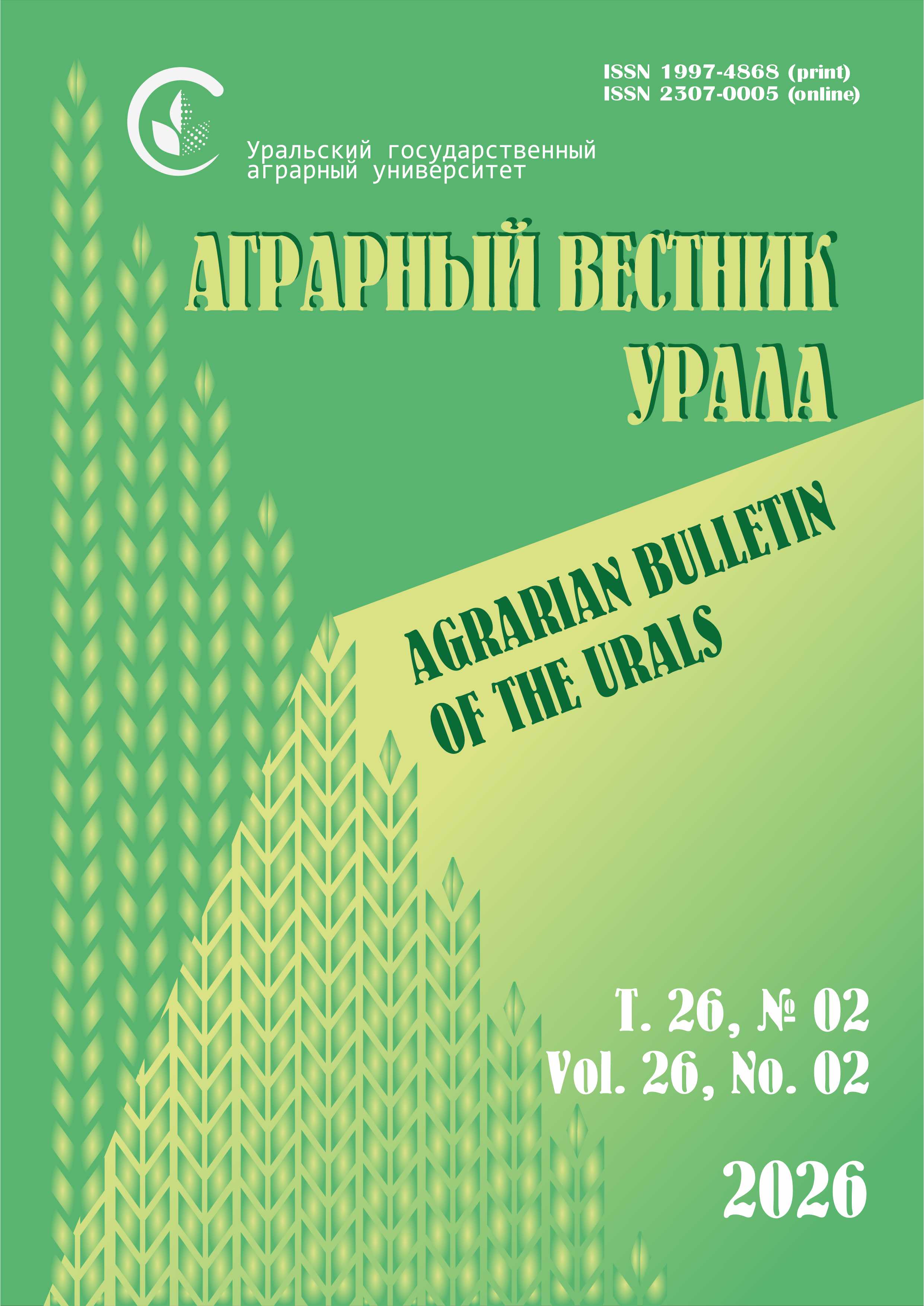E. V. Kilimnik
Ural Law Institute of the Ministry of Internal Affairs of the Russian Federation, Ekaterinburg, Russia
E-mail: This email address is being protected from spambots. You need JavaScript enabled to view it.
Volume 25 No. 6
Date of paper submission: 23.10.2024, date of review: 09.02.2025, date of acceptance: 21.03.2025.
Published: 06/30/2025
Abstract. In the context of growing global competition for sales markets, which affects the domestic domestic and export agro-food policy and, accordingly, the increase or decrease in investment flows into the agricultural sector, as well as the complex geographical features of Russia affecting the development of the agro-industrial complex, a decrease in the rural population, the size of sown areas, inflationary processes and an increase in domestic prices for food products – all these factors have a direct impact on the state of food security in Russia, which makes the topic of the study relevant. The purpose is a comprehensive assessment of the state agro-policy, the development of rural areas and the role of the agro-industrial complex and its business entities for the production of food products in solving issues of food security of the country. Methods. Application of analysis and synthesis of scientific research, the comparison method for statistical materials affecting the production of agricultural products in Russia in 2018–2023, which made it possible to determine the effectiveness of business entities in particular and the country's agriculture as a whole. The scientific novelty of the work consists in the application of an integrated approach, including economic, natural, climatic and social factors in assessing the effectiveness of the agricultural sector of the country's economy and business entities. Results. The work shows the volume of agricultural production in Russia at the end of 2023, which amounted to a total of 1394.7 billion rubles in the country's economy by value (in 2023). These indicators indicate a general improvement in the state of agriculture in the country, especially in the 2010s. A typology of business entities is proposed. It has been established that the greatest competitive advantages in the agricultural sector of Russia are retained by agricultural organizations and agroholdings that emerged in the 2000s (due to the volume of capital investments, production capacities, number of employees and innovative implementations in production) (the cost of production in crop and livestock production amounted to 5149.4 billion rubles in 2022). The country's role in grain supplies to the countries of the Middle East and North Africa (more than 2/3 of the total export volume in 2023) has been revealed.
Keywords: agricultural sector, business entities, production, products, trade, development, domestic market, protection, Russia, markets
For citation: Kilimnik E. V. The role of state policy and business entities in the production of food products in the Russian economy. Agrarian Bulletin of the Urals. 2025; 25 (06): 947‒962. https://doi.org/10.32417/1997-4868-2025-25-06-947-962 (In Russ.)
Download the full text of the article












